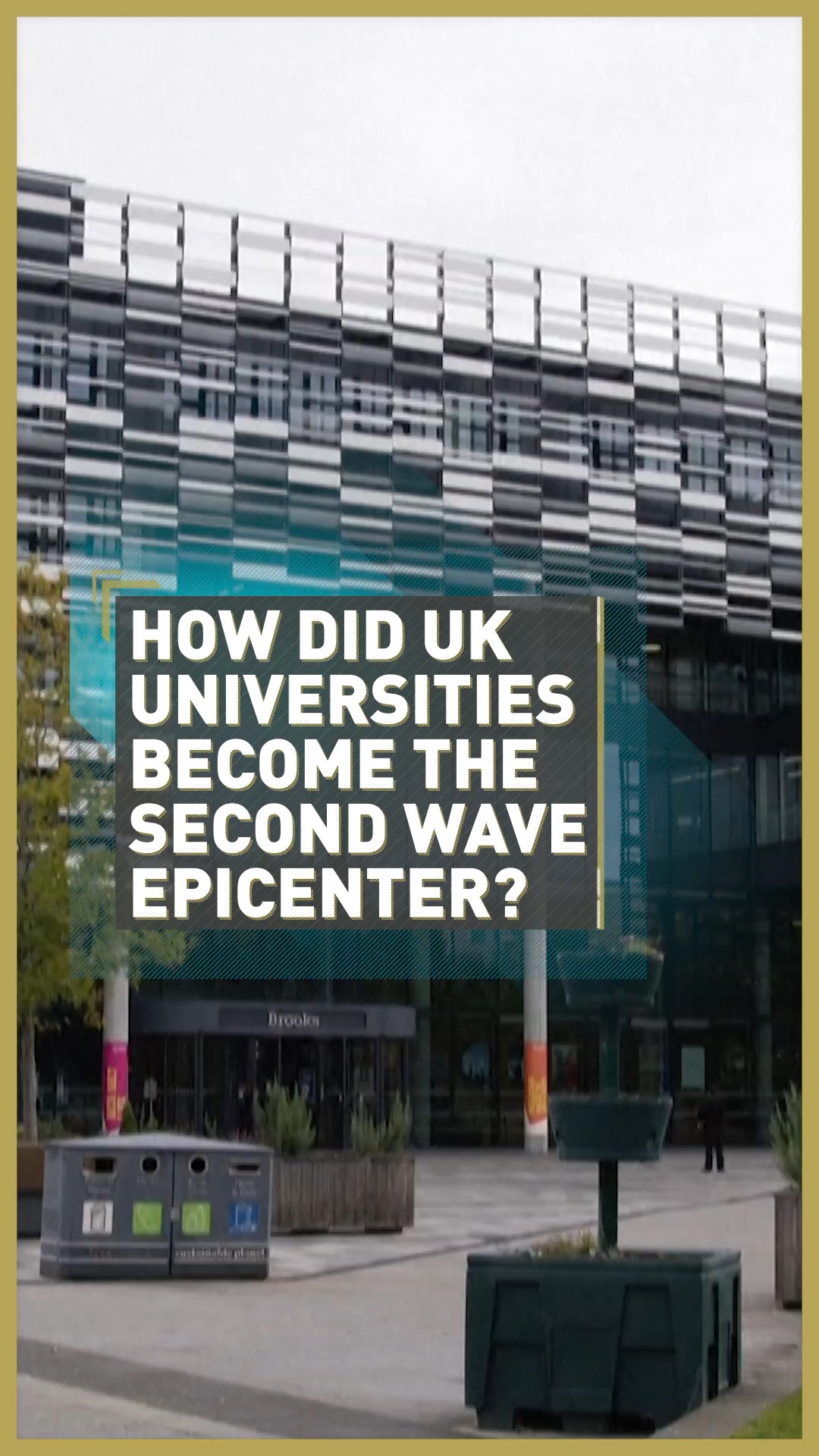03:20

Soon after an uncertain start of the academic year in early October, universities in England started reporting concerning outbreaks of COVID-19 among their student population.
In little more than two or three weeks, the situation escalated so much that 114 universities across the UK have reported COVID-19 cases, with a total of more than 20,000 students testing positive to the virus.
The University of Manchester has reported about 1,600 cases among students, and some staff, since September 28.
What caused the outbreak to be so large?
"We believe it was the socializing at the beginning of the semester," says Nancy Rothwell, Vice-Chancellor of The University of Manchester.
"Interestingly, we are fairly certain it did not happen through teaching, because it happened well before the teaching began. So they haven't actually even been in classes."
Rothwell says that as far as she knew none of the University of Manchester students who tested positive to the virus has required hospital treatment.
Some students have been reported to have hosted 'COVID-19 positive' parties within the dormitories where hundreds of them are self-isolating, which were then broken up by campus security.
This kind of behavior forced universities to consider more severe forms of punishment for those breaking quarantine and restrictions.
"Some students have received fines from the police for not behaving, and I think that surprised them somewhat," says Rothwell. "Not in Manchester. But at one university, three students received very, very high fines – 10,000 pounds ($13,000) each."
In the most extreme cases the University of Manchester would exclude students breaking COVID-19 restrictions from some of the university's subjects.

A message made from stickers, referring to student fees, is seen at a students' accommodation at the University of Salford following the outbreak in Manchester. /Jason Cairnduff/Reuters
A message made from stickers, referring to student fees, is seen at a students' accommodation at the University of Salford following the outbreak in Manchester. /Jason Cairnduff/Reuters
Should students get a refund?
In response to the risk posed by the coronavirus pandemic, many universities are moving their teaching online, while others, including the University of Manchester, are offering a blend of face-to-face and online teaching.
But learning online is not quite the same as the in-person experience students were expecting, and many say it's not worth the very expensive tuition fees and university accommodation they paid for.
UK prime minister Boris Johnson said universities are autonomous in making their own decisions on refunding students, but the Office for Students, England's independent regulator for higher education, ruled that universities must consider requests for partial refund.
"There is a regulatory body in England that advises us on this, and in fact can enforce it," explains Rothwell.
"They look at: Did the student get the outcomes they needed? Did they get the degree they needed, the qualification they needed, the experience they needed and the skills they needed? They don't ask how many lectures did they get, or how much was online or how much was face-to-face. They focus on the outcome and that outcome, obviously, we can't tell until the end of the academic year."
Interview: Xi Jia | Video Editor: Riaz Jugon